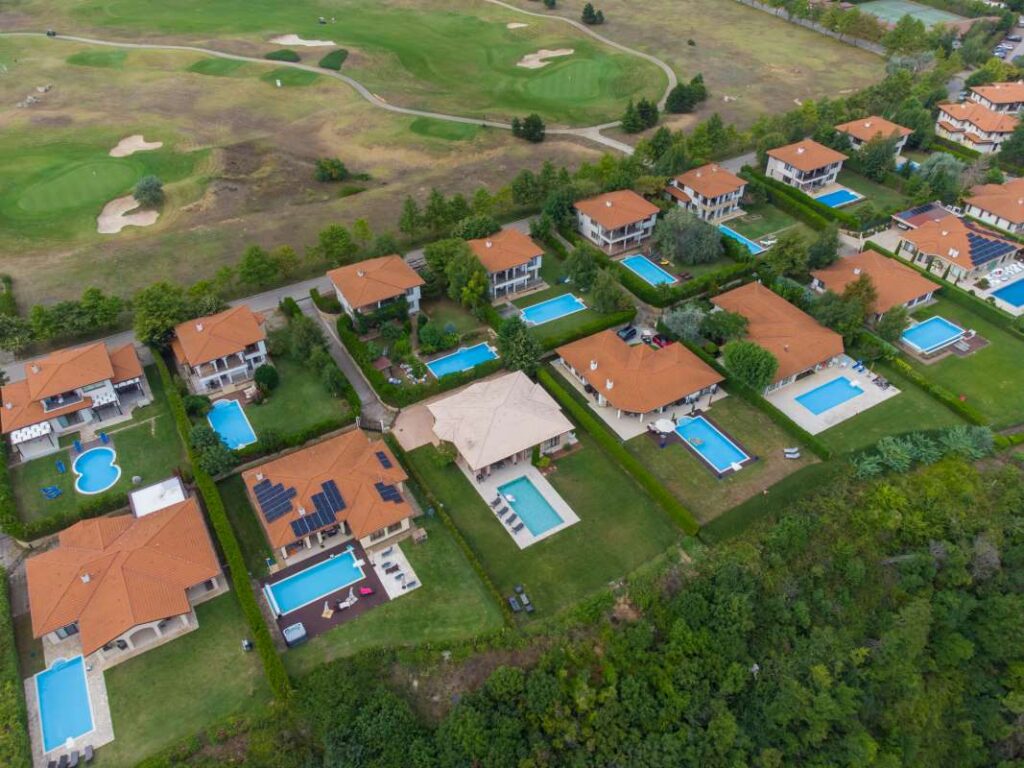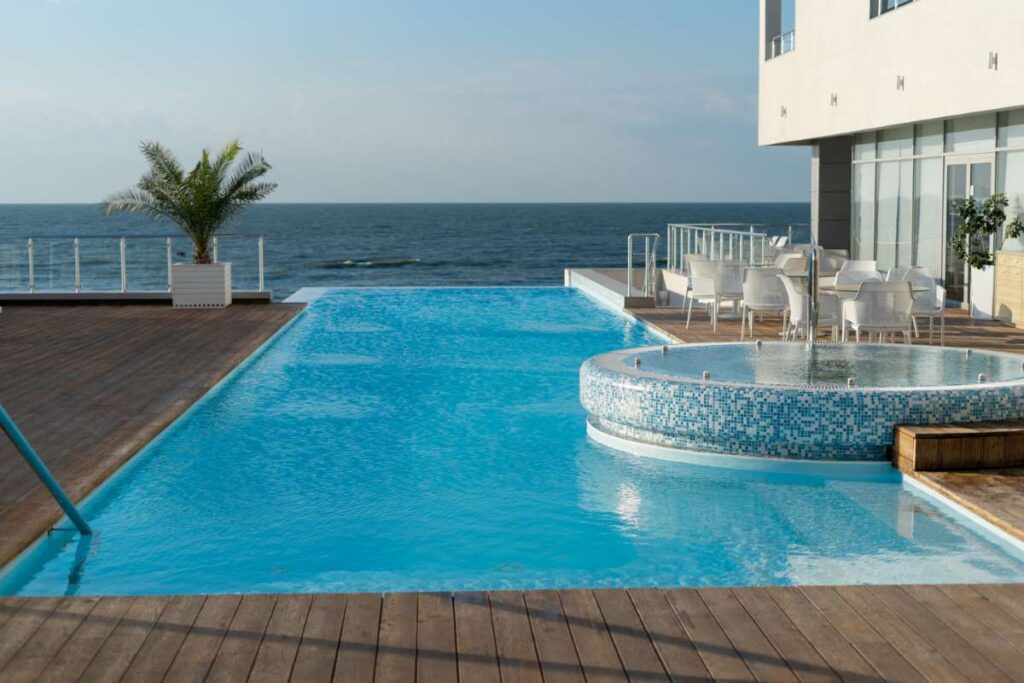Advanced Techniques for Cleaning and Maintaining Pools
Explore advanced techniques for cleaning and maintaining pools to ensure crystal-clear water and a safe swimming environment.
In the world of pool maintenance, keeping your pool clean and well-maintained goes beyond just surface skimming and occasional chemical checks. For pool owners and service providers alike, understanding advanced techniques can lead to a healthier swimming environment, increased efficiency, and ultimately, happier customers. In this blog post, we will delve into comprehensive strategies for pool cleaning and maintenance that will not only enhance the aesthetic appeal of your pool but also prolong its lifespan.
The Importance of Regular Pool Maintenance
Regular maintenance is crucial for several reasons:
- Health and Safety: A clean pool reduces the risk of waterborne illnesses and algae growth.
- Cost-Effectiveness: Preventive maintenance can save pool owners from costly repairs and replacements down the line.
- Aesthetic Appeal: A well-maintained pool enhances the overall look of your property and provides a more enjoyable swimming experience.
Inadequate maintenance can lead to various issues, including cloudy water, unpleasant odors, and even equipment breakdowns. By implementing advanced cleaning techniques, you can ensure that your pool remains a safe and inviting space for swimmers.
Advanced Cleaning Techniques
One of the most effective ways to maintain a pool is through advanced cleaning techniques that go beyond traditional methods. Here are some approaches to consider:
1. Automated Pool Cleaners
Investing in automated pool cleaners can significantly reduce the time and effort needed for cleaning. These devices can be classified into three main types:
- Robotic Cleaners: These are self-sufficient and can navigate the pool floors and walls independently. Many models come equipped with sensors that allow them to avoid obstacles and remember the layout of your pool.
- Pressure-Side Cleaners: These cleaners use the pool’s existing pressure to capture dirt and debris. They are effective for larger debris but may require a booster pump for optimal performance.
- Suction-Side Cleaners: These cleaners utilize the pool’s filtration system to suction debris. They are typically less expensive than pressure-side cleaners but may not be as powerful.
According to a study by the Pool Supply World, automated cleaners can reduce cleaning time by up to 70%, allowing pool owners to enjoy their pools without the hassle of manual cleaning.
2. Regular Water Chemistry Testing
Maintaining proper water chemistry is essential for the safety and clarity of your pool. Advanced techniques in water testing can help you achieve balanced water quality:
- Digital Test Kits: These offer precise measurements for pH, chlorine, alkalinity, and other vital chemical levels. They are more accurate than traditional test strips and provide immediate results.
- Automated Monitoring Systems: Consider installing systems that continuously monitor water quality and send alerts directly to your smartphone. This technology allows for real-time adjustments, ensuring that water chemistry stays optimal.
It is recommended to test your pool water at least once a week and adjust the chemicals accordingly. A well-balanced pool reduces the likelihood of skin irritations and algae growth, creating a more enjoyable swimming experience.
3. Utilizing Enzymatic Cleaners
Enzymatic cleaners are an advanced solution for breaking down organic matter in your pool. These products work by using natural enzymes to digest oils, lotions, and other contaminants, making it easier to keep the water clean. Benefits of using enzymatic cleaners include:
- Environmental Safety: Many enzymatic cleaners are eco-friendly and safe for swimmers.
- Efficiency: They can break down contaminants faster than traditional cleaning methods, reducing the load on your pool’s filtration system.
Incorporating enzymatic cleaners into your maintenance routine can lead to clearer water and less frequent filter cleaning.
Best Practices for Maintaining Pool Equipment
Proper maintenance of pool equipment is as vital as cleaning the pool itself. Here are some best practices:
1. Regular Filter Maintenance
The filter is the heart of your pool’s circulation system. Keeping it clean is essential for maintaining water clarity. Here are some advanced tips:
- Backwashing: Depending on your filter type, backwash it regularly to remove debris. A general rule is to backwash when the pressure gauge shows a 10-15 psi increase from the normal operating pressure.
- Deep Cleaning: For cartridge filters, soak the cartridges in a filter cleaner solution every six months to remove built-up oils and dirt.
Regular filter maintenance can extend the life of your equipment and improve pool water quality.
2. Inspecting Pool Pumps and Heaters
Regular inspection of your pool’s pump and heater is crucial:
- Pumps: Listen for unusual noises, and check for leaks or vibrations. Ensure that the pump basket is clean and that the motor is functioning properly.
- Heaters: Look for signs of rust or corrosion, and clean the heater’s filter regularly. Ensure that the heater is performing efficiently to save on energy costs.
Scheduling annual professional inspections for your equipment can catch potential issues early, saving you time and money in the long run.
Creating a Maintenance Schedule
Establishing a structured maintenance schedule can significantly enhance your pool’s longevity. Consider the following:
1. Weekly Tasks
Include tasks such as:
- Testing water chemistry
- Skimming the surface for debris
- Vacuuming the pool floor
- Checking the filter pressure
2. Monthly Tasks
Monthly maintenance should involve:
- Deep cleaning the filters
- Inspecting pool tiles and surfaces for algae or scale buildup
- Checking pool equipment for wear and tear
3. Seasonal Tasks
Seasonal maintenance activities can include:
- Winterizing your pool in colder climates
- Inspecting and servicing heaters before the cold months
- Reassessing your pool cover for leaks or damage
By adhering to a maintenance schedule, you can ensure that your pool remains in optimal condition throughout the year.
Leveraging Professional Services
For pool owners who may not have the time or expertise to perform advanced maintenance tasks, leveraging professional services can be beneficial. Companies like Superior Pool Routes offer tailored solutions for pool maintenance, including:
- Account Acquisition: If you’re looking to start a service business, consider pool routes for sale in your area.
- Training Programs: Take advantage of professional training programs to enhance your pool service skills.
- Expert Advice: Consult with experienced technicians who can provide insights into best practices.
By partnering with professionals, you can maximize your pool maintenance efforts and ensure high-quality service delivery.
Conclusion
Maintaining a pool is an ongoing process that requires knowledge, dedication, and the right techniques. By implementing advanced cleaning methods, ensuring proper maintenance of equipment, and creating a structured maintenance schedule, you can keep your pool in pristine condition and extend its lifespan. Remember, investing in quality maintenance not only enhances the swimming experience but also protects your investment. For those looking to delve deeper into the pool service industry, explore opportunities such as pool routes for sale and consider training programs that can elevate your expertise. Dive into a cleaner, safer, and more enjoyable pool experience today!



